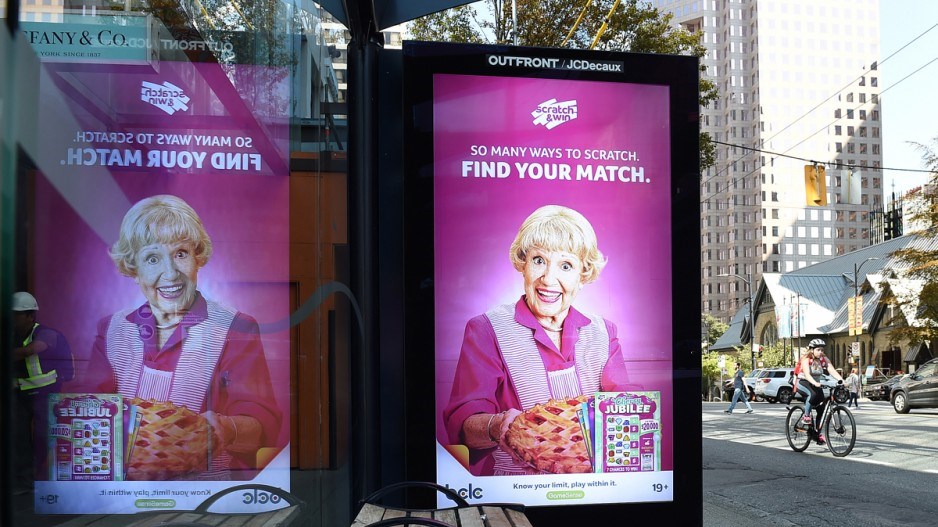Cameras on Vancouver bus stops are being covered up after Glacier Media revealed they had been built into new digital advertising signs.
But, say both the city and TransLink, the situation has nothing to do with them. And the company involved assures members of the public their privacy is not being violated.
“We have taken steps this weekend to cover the cameras on these units, and trust that this information and the covering of the cameras will alleviate any concerns,” said a statement from Outlook and JCDecaux provided by the city.
The tiny cameras are at eye level on shelters with digital advertising.
The revelation of the cameras’ existence September 6 (https://www.vancourier.com/your-vancouver-bus-stop-is-watching-you-1.23938725) led to the province’s Office of the Information and Privacy Commissioner (OIPC) opening an investigation into the situation.
City communications manager Ellie Lambert said the city signed a 20-year agreement with the Outlook-JCDecaux partnership in 2004 to provide street furniture in exchange for advertising revenues.
“The agreement allows for both print and digital advertisements,” Lambert said. “Over the past several months, Outfront/JC Decaux has implemented the first digital advertising panels.”
She said the city takes privacy matters seriously.
“The agreement with Outfront/JCDecaux requires them to comply with all regulations – local, provincial and federal – including those regulations governing privacy,” she said.
The companies’ statement said the camera lenses on the panels are governed by a factory setting that is not functional or enabled.
“Therefore, it is unable to collect images or other information,” the statement said. “They will be altering the panel to ensure the lens is also covered to address any outstanding concerns regarding the appearance of a camera on the panel.”
Outfront/JCDecaux said the cameras would remain non-operational.
“They are not connected to anything,” the company said. “They are not capturing any images, data, or recordings of any kind.”
The company also said via the city “that Outfront/JCDecaux operates in full compliance with all federal and provincial privacy legislation and regulations, and will continue to operate in the City of Vancouver with the utmost care and compliance for the privacy rights of Vancouver’s residents.”
Outfront/JCDecaux did not respond to three Glacier requests for comment on September 6.
Lambert said the city was alerted to concerns about the panels last week and the company told the city the same day the cameras were not active.
Privacy Concerns
For privacy watchdogs, though, the presence of the cameras is troubling. There is nothing indicating their presence and, had they been operational, those potentially in the eye of the lens would not have been asked for their consent to be photographed. Nor is there any indication as to what would have been done with any information recorded.
TransLink spokeswoman Jillian Drews said the company received no “formal notification” from the city about the cameras. Nor does the city have any obligation to provide such notification, she said.
TransLink did not respond to questions as to whether it has any moral or ethical responsibility to assure its customers’ privacy.
Drews reiterated earlier comments that the “bus shelters and the ads at them are not TransLink property. All TransLink owns is the pole.”
Drews took issue with acting BC Civil Liberties Association acting policy director Meghan McDermott’s assertion that there have been problems in the past with Translink sharing data on people’s travel patterns it has collected with law enforcement without court warrants.
“The OIPC investigated TransLink’s practices and ruled early this year they are not in violation of privacy law,” Drews said. “We would like it to be very clear TransLink follows privacy law and has not been in violation.”
A March OIPC decision was about Burrard SkyTrain station plans, not privacy issues. Another OIPC ruling, though, noted TransLink does record passengers on hundreds of its vehicles. The September 11, 2017, decision noted when requests for footage were granted, identities of third parties are masked.
The commissioner’s office pointed to a 2017 investigation about TransLink’s information-sharing practices and reports that TransLink shared its riders’ Compass fare card information with law enforcement agencies. That probe resulted in TransLink releasing a privacy transparency report (https://www.translink.ca/About-Us/Corporate-Overview/Privacy-Transparency-Report.aspx).
TransLink may now find itself under the public glare of the OIPC lens again regarding the Outfront-JCDecaux cameras.
“We were not aware of this matter and are now actively looking into it,” commissioner Michael McEvoy said September 6.
TransLink has in the past fought attempts by law enforcement to obtain information from its cameras.
A Glacier Media investigation (https://www.vancourier.com/broad-police-vehicle-data-requests-an-abuse-of-power-lawyer-1.23507144) in November 2018 showed Translink officials repeatedly pushed back against police requests for data on vehicles crossing tolled Lower Mainland bridges, telling officers the requests were too broad and could result in privacy breaches.
@jhainswo




